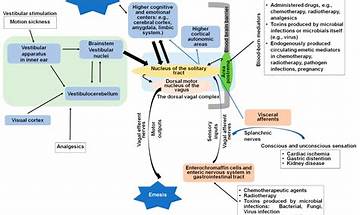Domestic innovative drugs are approved for weight loss indications for the first time, and a large wave of competitors are on their way.

The market competition of GLP-1 receptor agonist for weight loss indications is becoming increasingly fierce. Last week, Benarutide Injection (trade name: Feisumei) declared by Renhui Bio was approved for weight loss indications. This is the first domestically-made original new drug approved for weight loss indications, and it is also the third GLP-1 drug approved worldwide after Novo Nordisk's liraglutide and Smegrutide. In addition to the single-target drugs of GLP-1 receptor agonist, domestic and foreign pharmaceutical companies are competing to develop double-target or even triple-target drugs.
Renhui Bio-Benarutide Injection was approved for weight loss.
On July 27th, the application for marketing license of Benarutide Injection declared by Renhui Bio was approved, which was used for patients with BMI ≥ 28kg/m2 or with BMI ≥ 24kg/m2 accompanied by at least one weight-related complication (such as hyperglycemia, hypertension, dyslipidemia, fatty liver, obstructive sleep apnea syndrome, etc.). Benalutide is a fully human GLP-1 receptor agonist independently developed by Renhui Bio.
At the beginning of July, Huadong Pharmaceutical announced that the application for the marketing license of liraglutide injection declared by its subsidiary, China, America and Huadong, was approved. This is the first GLP-1 receptor agonist approved for weight loss in China, and it is a similar drug of Novo Nordisk liraglutide.
While treating diabetes, it also has the effect of losing weight, which makes GLP-1 receptor agonist famous. According to the "Analysis Report on Global Obesity Drug Competition Pattern" published by the Insight Database of Lilac Garden, there are 8 new GLP-1 receptor agonist single-target drugs approved for marketing in the world, which are mainly used to treat type 2 diabetes. Before Benarutide was approved, the only GLP-1 receptor agonists in the world that had been indicated for weight loss were liraglutide and Smegrutide, both of which were developed by Novo Nordisk.
More than 100 new GLP-1 drugs in China have entered the clinical stage.
According to the statistics of CICC, the GLP-1 receptor agonist drug market in China will expand at a compound annual growth rate of 57% and reach 15.6 billion yuan in 2025.
Under the scale of 10 billion market, many enterprises compete for layout. Insight database shows that as of the end of June this year, 112 new GLP-1 drugs have entered the clinical stage in China.
In the research and development track of liraglutide bio-analogues, in addition to the approved East China Medicine, the weight loss indications of liraglutide bio-analogues of Shuanglu Pharmaceutical and Wanbang Pharmaceutical have also progressed to Phase III clinical trials. In addition, Yizhuang International Protein Medicine Co., Ltd. and Liraglutide of Norbert Bio, a subsidiary of Aimeike Holdings, are also conducting clinical trials for weight loss indications.
In terms of smeaglutide, the competition is also fierce. On June 7th, Zhengda Tianqing submitted the application for clinical trial of GLP-1 biological analogue Smegrutide injection to the State Food and Drug Administration. On June 13th, Sihuan Medicine announced that the clinical trial application (IND application) of SMEGULUTE injection developed by Huisheng Bio for treating type 2 diabetes was accepted. In addition, many companies including Unacon, Tianjing Bio, Hengrui Pharmaceutical, Ganli Pharmaceutical, etc. have made arrangements in the field of GLP-1 receptor agonists.
Domestic and foreign pharmaceutical companies lay out dual-target and triple-target drugs.
In addition to these single-target drugs, there are also enterprises in the layout of double-target or even triple-target drugs. Tirzepatide, a newly disclosed dual agonist of glucose-dependent insulinotropic polypeptide (GIP) and glucagon-like peptide -1(GLP-1) receptor in Lilly, has achieved all major and key secondary endpoints in two phase III trials. Obese or overweight adult patients (accompanied by weight-related comorbidities that do not include type 2 diabetes) lost an average weight of 26.6% after intensive lifestyle intervention and continuous treatment with tirzepatide.
Another company AstraZeneca's product line also includes weekly GLP-1R/GCGR dual agonist AZD9550.
On the evening of July 30th, Huadong Pharmaceutical announced that the application for clinical trial of DR10624 for injection for overweight or obese people was approved by the State Food and Drug Administration. DR10624 is the first long-acting three-target agonist targeting GLP-1R, GCGR and FGF21R in the world. Pre-clinical animal studies show that DR10624 has obvious effects of reducing blood fat, weight and blood sugar. In July, 2023, DR10624 was administered to the first subjects in a phase I clinical trial of multiple incremental dose administration (MAD) for the treatment of obesity in New Zealand.
Beijing News reporter Zhang Xiulan
Proofread Sissi
Declaration: All article resources on this website, unless otherwise specified or labeled, are collected from online resources. If the content on this website infringes on the legitimate rights and interests of the original author, you can contact this website to delete it.






